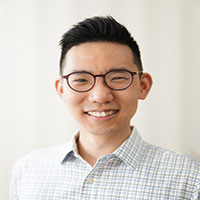Exterior Angle Theorem in Spherical Geometry
Summary: In Euclid’s Elements, the exterior angle theorem (Proposition 1.16) states that the measure of an exterior angle of a triangle is greater than either of its remote interior angles. This theorem is valid in Euclidean geometry and hyperbolic geometry, but not valid in spherical geometry. Indeed, the proof for this theorem originally presented in Elements contains a hidden assumption of absolute geometry and can be modified in modern systems (e.g., SMSG axioms). In a college geometry course, students constructed Euclid’s proof for the exterior angle theorem in a spherical model using dynamic geometry software. They searched for counter-examples of the theorem on the sphere to explain when and why this theorem does not hold on spheres, namely what makes this proof fail. In this talk, I will present how this proof analysis task engaged students in exploring figures and generalizing their observations.
Registration Closed
Duration: 60 minutes
Format: Online seminar via Zoom web meeting software with questions and discussion. Detailed instructions for joining the seminar will be emailed to registered participants.
Presenter:

Dr. Younggon Bae is an Assistant Professor of Mathematics Education in School of Mathematical and Statistical Sciences at the University of Texas Rio Grande Valley. He earned B.S. and M.S. in mathematics with a focus on mathematical logic and model theory. He earned a Ph.D. in mathematics education at Michigan State University in 2019. He has been teaching a wide range of post-secondary mathematics from college algebra to advanced geometry courses for undergraduate and graduate mathematics majors including secondary teachers. His scholarly work is centered around innovative curriculum and instruction for advanced mathematics courses in technology-integrated environments, engaging students in disciplinary practices in mathematics, and exploring sociocultural aspects of students’ learning experience inside and outside classrooms.
